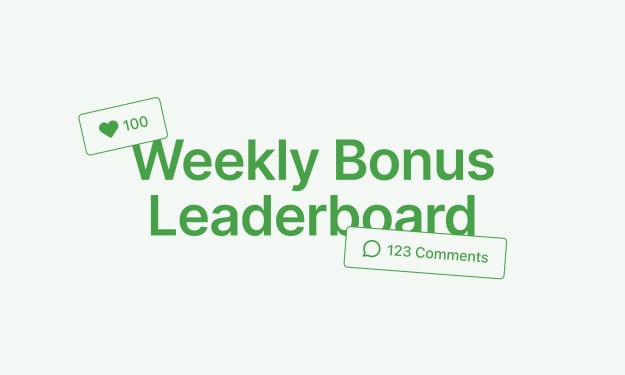Simple Steps to Go from Feeling Powerless to Empowered
How We Can Empower Ourselves to Define Our Mental Health Journey

If you are like me, your mental health journey has been fraught with frustration and a sense of powerlessness due to stigma and unwelcome advice. These factors can make seeking support, using crucial treatments like medications, or even pursuing a diagnosis feel daunting.
Stigmatized beliefs often force us to justify our choices in seeking professional help or medication, leading us to doubt ourselves. As a mental health professional, ADHD coach, and someone diagnosed with ADHD and Generalized Anxiety Disorder, I have encountered these challenges firsthand.
Through my experiences, I have learned invaluable strategies to overcome these barriers. It is crucial to recognize that where we direct our energy directly impacts our mental well-being. If you relate to this struggle, I want you to remember that your journey to mental well-being is valid and deserving of respect, regardless of other's opinions or misconceptions.
You owe no justification for prioritizing your mental health—it is an essential part of self-care and personal growth. In this article, I will share two unexpected yet empowering tools that helped me regain control of my mental health journey.
As a person with ADHD and anxiety I know doing this is not easy so et us explore a few ways you can empower yourself to prioritize what truly matters: your mental health.
Embracing Radical Acceptance of Differing Beliefs
It is common to face discomfort from unsolicited advice and stigma, often stemming from a limited understanding of conditions like ADHD. When confronted with claims dismissing ADHD or its treatments, it is crucial to challenge these misconceptions without compromising your mental well-being.
In my journey, fear once paralyzed me from seeking supportive environments. Over time, I realized the importance of surrounding myself with understanding allies who validate my experiences. Doing this helped me to hold space for myself and show myself empathy and encouragement, which empowered me to better prioritize and understand looking after my mental health is necessary and that my diagnosis, symptoms, and challenges are more than a person's misinformed opinions.
Focusing on What You Can Control and Where You Invest Your Energy
Reflecting on my journey, the concept of "Locus of Control" reshaped how I approach seeking support and managing influences on my mental health. It taught me to define my challenges and treatments consciously and who influences my decisions.
Making this shift was pivotal in my journey. Instead of futile debates and exhausting justifications, I focused on constructive self-care and supportive relationships. By channeling energy into positive influences and self-reflection, I reclaimed agency over my ADHD and anxiety management.
Conclusion
Lastly, I would like to say I know that navigating challenges lie societal stigma and unsolicited advice, can feel daunting and overwhelming. However, I assure you: there is nothing fundamentally wrong with you. Embracing the powerful tools discussed in this article can revolutionize your approach to mental health, empowering you to dismantle barriers and prioritize your well-being.
Choose supportive allies who empathize with your journey and offer encouragement while setting boundaries and cultivating a supportive network. Through continual education, self-compassion, and focusing on nurturing influences, you can reclaim your power and reshape your mental health journey. Remember, your worth is non-negotiable, and by refusing to let others define your journey, you can advocate for yourself and embrace a healthier, empowered life.
From my journey, I know these steps may seem challenging, but they are profoundly empowering. They allow us to prioritize the support we need, including medication, therapy, and supportive communities. Asserting control over your narrative helps us to foster resilience and self-advocacy, empowering us to navigate and overcome mental health challenges with confidence, resilience, and compassion.
Here is a summary of the above steps.
Acknowledge Misconceptions: Recognize that stigma and unsolicited advice often come from misunderstandings about conditions like ADHD and other mental health and neurodivergent conditions, which do not reflect your worth or the validity of your experiences.
Surround Yourself with Allies: Seeking out supportive environments and people who validate your experiences, provide essential empathy and encouragement, and reinforce the importance of prioritizing your mental health. Speaking to trained health professionals is crucial; they can offer informed guidance and support tailored to your needs.
Focusing on The Things in Your Control: Focusing on what you can influence, such as self-care routines and supportive relationships, rather than external judgments and criticisms.
Constructive Self-Care: Invest energy into self-care and positive influences to build resilience, reclaim agency over your mental health journey, and reduce the impact of stigma and self-doubt.
References and Resources
Mayo Clinic. (2022, September 29). Mental health. Retrieved from https://www.mayoclinic.org/departments-centers/psychiatry-psychology
MindTools | Home. (n.d.). https://www.mindtools.com/am8v6ux/locus-of-control
Lcsw, A. M. (2021, September 3). How to Stop Focusing on Things You Can't Control. Verywell Mind. https://www.verywellmind.com/how-to-stop-focusing-on-things-you-can-t-control-the-verywell-mind-podcast-episode-102-5199900
Psych Central. (n.d.). What it really means to practice radical acceptance [Blog post]. Retrieved from https://psychcentral.com/blog/what-it-really-means-to-practice-radical-acceptance#_noHeaderPrefixedContent
About the Creator
Sandy Pace
I’m a freelance writer with ADHD and anxiety. Who’s passionate about mental health awareness and other related topics. And has written for publications like ADDitude Magazine, Thought Catalog, TotallyADD, BuzzFeed @ other publications.
Enjoyed the story? Support the Creator.
Subscribe for free to receive all their stories in your feed. You could also pledge your support or give them a one-off tip, letting them know you appreciate their work.






Comments
There are no comments for this story
Be the first to respond and start the conversation.